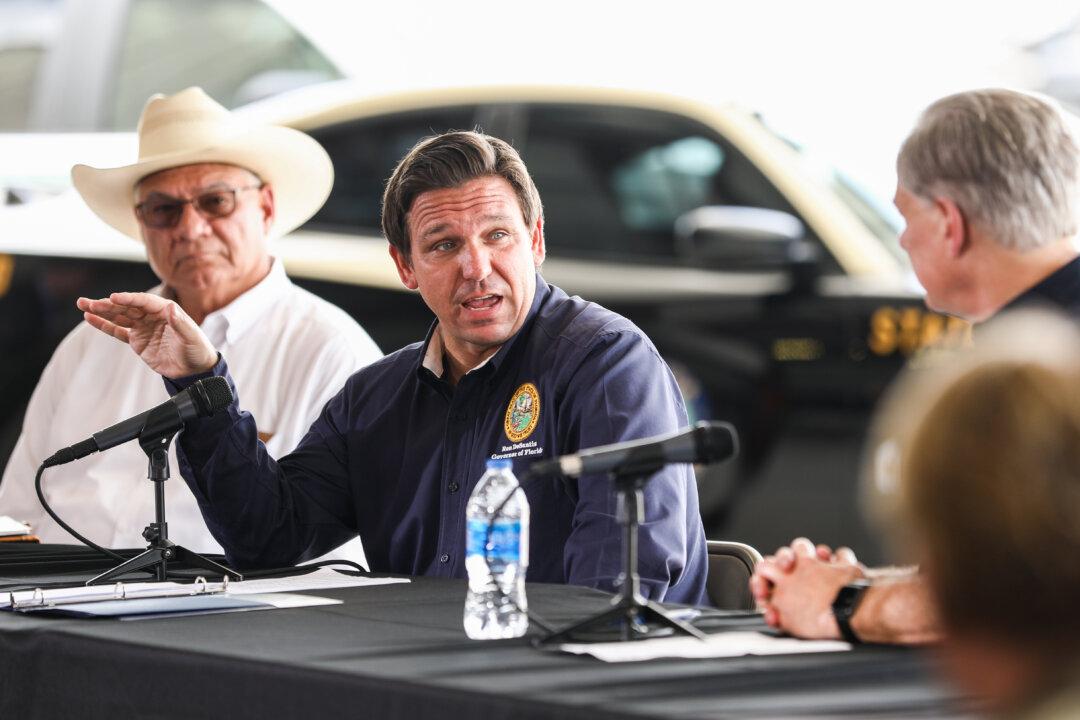DEL RIO, Texas—Florida Gov. Ron DeSantis said he’s looking at “all available options” at the state level to deter and deport illegal immigrants, especially those planning to reside in Florida.
“We’re trying to figure out what all our options are because if there’s not a deterrent—and I’m a big supporter of the border wall, don’t get me wrong—but if there aren’t policies backing that up to enforce the law, then you’re still going to have people who are going to find some way to get in and violate the law,” DeSantis told The Epoch Times on July 17.





